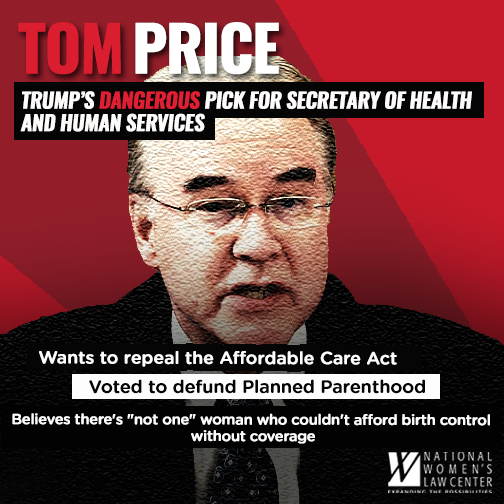Abortion rights, women of color, and LGBTQIA+ people are under attack. Pledge to join us in fighting for gender justice.
CHIP Must Be Reauthorized and It Must Also Be Improved to Better Cover Pregnant Women


Senate Finance Committee Chairman Orrin Hatch recently remarked of Congress’ failure to reauthorize the Children’s Health Insurance Program (a.k.a. CHIP), which provides vital health coverage to millions of children up to age 19: “The reason CHIP’s having trouble is because we don’t have money anymore…” Sen. Hatch seemed to have forgotten that— in the dark of night—he and his cronies in the Senate passed a massive Christmas gift to the rich in the form of the Senate tax bill that will be paid for on the backs of families struggling to make ends meet. But, Congress let funding for CHIP expire September 30th. Never mind that Congress’ inaction is leaving the millions covered by CHIP, which has had bipartisan support throughout its twenty-year history, in a precarious limbo. Among those whose health coverage is threatened by congressional inaction on CHIP are hundreds of thousands of pregnant women.
As of January 2017, 34 states covered over 300,000 pregnant women through CHIP. These are individuals who are without employer-sponsored coverage and who do not qualify for Medicaid, but who are unable to afford private insurance. Because of CHIP, they are getting important coverage they would otherwise be unable to afford. Covered services for pregnant women vary by state, but most states cover not only the critical prenatal and postpartum care pregnant women need, but also other important services such as prescription drugs, mental health services, and emergency services. This coverage helps to promote healthier pregnancies, better birth outcomes, and healthier moms. Losing CHIP coverage could mean hundreds of thousands of pregnant women will be left without health insurance coverage, which would negatively affect their health, their babies’ health, and the family’s economic security.
While CHIP coverage for pregnant women is important, it does not provide the comprehensive health services that pregnant women need, including abortion. One reason is that in 2002, the George W. Bush Administration created a rule allowing states to cover pregnant woman under an “unborn child” option, which allows an “unborn child” to be eligible for CHIP. As of January 2017, sixteen states were covering pregnant women under the “unborn child” option. While this option has enabled some states to provide CHIP coverage to undocumented pregnant women who were previously ineligible for coverage, most CHIP coverage provided under the “unborn child “ option is narrowly targeted to cover services only for the “unborn child”—leaving pregnant women without the coverage that they need. For example, services not deemed directly related to the “unborn child,” such as postpartum care and family planning services for the mother, are not always covered. Like the recent effort to put “unborn child” language in the tax bill, this was an attempt to get fetal personhood language into law to help set up a challenge to Roe v. Wade.
Another reason pregnant women are not receiving comprehensive coverage under CHIP is because the program withholds insurance coverage for abortion, except in extremely limited circumstances where a woman is pregnant as a result of rape or incest, or when her life is in danger. Like the federal Hyde Amendment— created to make it impossible for women to get abortions—this ban makes it impossible for those enrolled in CHIP who are struggling to make ends meet to access abortion care. Women disproportionately impacted by coverage bans like CHIP’s include low-income women, women of color, and young women. This means that women struggling to get by who are covered by CHIP are forced to postpone paying for basic needs like food, rent, or utilities, in order to pay for an abortion or may have to delay the procedure while they gather the money to pay for it. And a woman who seeks an abortion, but is unable to access it is more likely to fall into poverty than a woman who is able to get an abortion. This restriction is only designed to further an anti-abortion agenda to restrict women’s access to abortion.
The importance of CHIP to pregnant women cannot be overstated and Congress must act without delay to reauthorize the program. But it must also act to ensure that the program’s coverage is robust and comprehensive for pregnant women who rely on it.



